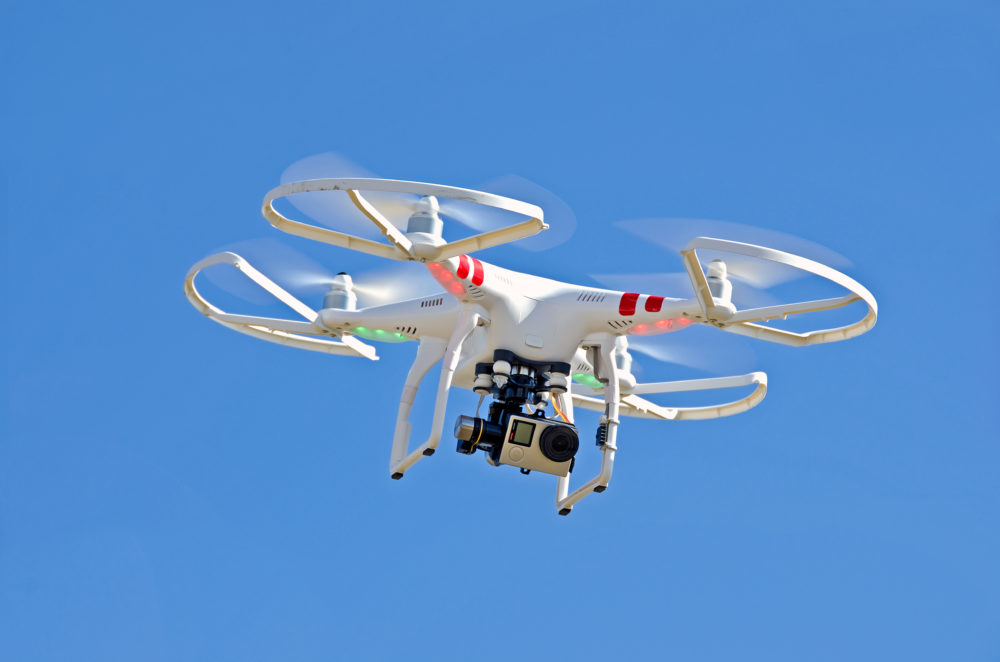Gatwick Airport has been closed since the night of 19th December due to a number of drones flying over the runway.
Tens of thousands of passengers have seen their flights delayed or cancelled as a result. The disruption could last for ‘several days’, with flights being diverted to nearby airports.
Earlier this year, new laws were put into place to regulate how drones are used across the UK.
Karen Holden, founder of A City Law Firm, outlines the current regulations are and what they mean for small businesses.
What do I need to know about the drone laws?
The new rules, introduced on the 30th July, mean that drone users are no longer allowed to fly their devices above 400ft (120m) or within a 1km radius of any airport boundary.
The incoming provisions will require owners of drones weighing 250 grams or more to register them with the Civil Aviation Authority (CAA) and take an online safety test. These requirements will come into force on the 30th November 2019.
Furthermore, the new drone safety awareness tests mean owners will have to prove that they understand UK safety, security and privacy regulations, meaning the legal onus will be placed securely at their door. This then opens potential for insurance and tighter restrictions in a hope that, without insurance and assessments, people who are not prepared to operate drones carefully will not be able to.
If you are a commercial user, understand the laws and have a policy in place which outlines a risk assessment and plan. As well as obtaining a permission (similar to a licence), it is also important to monitor employee compliance, have insurance in place and monitor GDPR requirements.

Drone operators who ignore the new height and airport boundary restrictions could be charged with recklessly or negligently acting in a manner which could endanger an aircraft or any person in the aircraft. This could result in an unlimited fine, up to five years in prison, or both.
Users who fail to register or sit the competency tests could face fines of up to £1,000. It is hoped that this is a sufficient deterrent, however, many also welcome the enforcement rules proposed to intervene in drone usage if these rules are ignored.
Drones have become a more important part of society and their benefits extend to the speeding up of deliveries, such as blood transfusions; increased safety (e.g. by replacing people inspecting nuclear power stations); filming; construction or rail safety inspections, to name but a few. So, while the government would want to encourage continued use, security, safety and regulation changes were inevitable, despite being slow to come into fruition.
In addition to the new drone laws, the government also plans to expand the use of ‘geo-fencing’ in the UK, which is an invisible shield around buildings or sensitive areas like prisons and airports. This technology works on GPS coordinates, so can be built into a drone and stop it from entering these zones. It is thought drone operators will be told to use apps to plan their flights to ensure they are not entering unsafe or no-fly zones, which will also be visible to other drone users.
“Users who fail to register or sit the competency tests could face fines of up to £1,000”
Later developments, yet to be announced, will include immediate intervention if a drone operator fails to follow the rules. As such, if a drone pilot is suspected of flying unsafely or carrying out any illegal activities with their drone, police will have powers to ground the drone and seize it and any memory cards as evidence.
Why were these measures brought in?
These new regulations were introduced after several near misses of drones at Luton and Gatwick airports were reported, these placed multiple lives at serious risk. In 2017, there were 93 reported drone incidents involving aircraft alone whilst general security breaches on the rise.
Recent papers report Chris Woodroofe, chief operating officer at Gatwick Airport, saying, ‘We welcome the clarity that the announcement provides as it leaves no doubt that anyone flying a drone must stay well away from aircraft, airports and airfields.
‘Drones open up some exciting possibilities but must be used responsibly. These clear regulations, combined with new surveillance technology, will help the police apprehend and prosecute anyone endangering the travelling public.’
The effects of drone laws on small businesses
All businesses that use (or plan to use) drones will be impacted by this new legislation. However, it is those with limited resources for legal policies, risk assessment analysis and training that may be impacted to a far greater extent.
This is because it will likely be the management team (who may not necessarily be fully experienced) who will have to put all this in place, so the company can continue using drones. Likewise, enforcement action and penalties will have a great impact on smaller businesses, particularly those with lower profit margins.
If you are a commercial user you should understand the laws and have a policy in place which outlines a risk assessment plan. It is also important to monitor employee compliance, have insurance in place and monitor GDPR requirements.
Start the preparation process now. Look at your current policies, insurance, processes, risk assessment and training and ensure you have adequate time and resources available so that you are not rushing and your policies are accurate. Take the time needed to get this right and plan a budget for all of the costs involved.
Philip Tarry, owner of Halo Aerial Imaging, talks about how the new laws will impact people who use drones.

We provide specialist commercial drone services and training to customers looking for aerial data who either want to outsource or insource the expertise in order to capture it.
Having trained new pilots for the past three years, we recognised the struggle that most new operators (who do not come from a background in aviation) had with the old rules. These new rules go some way to tie up some loose ends in the old regulations, they pave the way for enforcing accountability in the future, but they have been structured and worded in a way which is causing unnecessary confusion which is dangerous.
The rules that came into effect at the end of July do not pose much additional work or consideration on top of the previous rules. However, the rules due to come into force in November 2019 are still yet to be clarified in terms of what they will involve, so it’s hard to anticipate how they will affect commercial drones’ operators.
“For existing commercial operators, it requires a small amendment to their operations manual and consideration when operating near any protected aerodromes”
Since we already have to go through a process of verification with the CAA, we already provide evidence of competency and we’ve completed our registration with the CAA, so the future rules are unlikely to affect us much – it will have the most dramatic impact on recreational users of drones.
Concern over app
The one particular proposal people are concerned about is the use of a mandatory app where pilots must register their flight in advance of an operation taking place. This must not be an administrative burden or cost or restrict how responsive operators can be to clients’ last-minute requirements, as this will have a drastic impact on how we do our business and could make or break the use of our technology.
For existing commercial operators, it simply requires a small amendment to their operations manual and further consideration if or when operating near any protected aerodromes.




